Background:
For well over three years, iSatori's Bio-Gro (bioactive peptides extracted from colostrum) have been the center of all kinds of internet controversy.
Do they work? Is it bioavailable? Is it better than raw colostrum? Why not just take more whey protein? Is it banned? Will I lose my natty card?
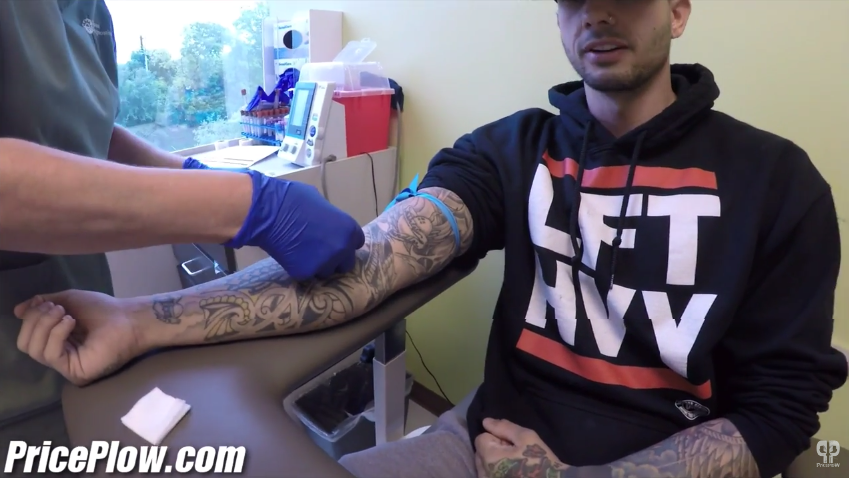
That's right, we got blood work done before and after a month of Bio-Gro. Will it raise IGF-1 or GH levels?!
When marketed as an industry "game-changer" and "fertilizer for the muscles", you're sure to get these kinds of questions -- and far more -- thanks to the wonderful social media site named YouTube and the plethora of shills looking for something new and profitable to sell.
To make matters worse, in April 2013, we added to the noise, with one of our worst reviews yet: one was coming off of an insane contest prep diet and gained 30 pounds, while the other was playing more volleyball than lifting. Review FAIL.
Years later, the same questions still remain, and we've been on the fence the entire time, except we have a new tool in the shed: the PricePlow Blood Testing program.
And while the newer Bio-Gro labels no longer show that IGF-1 is isolated from Bio-Gro, iSatori's own site still cites research showing that injecting IGF-1 into rat muscle tissue induces hypertrophy (archive.org link from May 31, 2016):
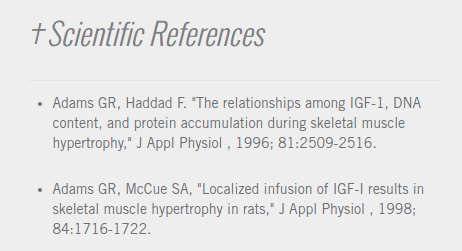
From iSatori's Website. If they're citing sources showing that IGF-1 injected into rats creates an anabolic state, then surely it's fair game to see if we can actually get that IGF-1 into the blood stream, no?
To us, that sounds like fair game for blood tests!
Previous research worth noting:
- The mean and median IGF-1 levels for Brazilian men is below:[1]
- Ages 26-30 years: Mean = 187, Median = 190
- Ages 31-35 years: Mean 178, Median 178
(Note the birthday - turning 31 during his month on this Bio-Gro review)
- After eight days, 125mL liquid colostrum slowly increased IGF-1 levels in athletes, with a heavy workout occurring on day 6.[2] This study is also cited by iSatori on their Bio-Gro literature.
- iSatori has released research showing that 56 days of Bio-Gro use is safe for the major organs [3] and that Bio-Gro "produced significantly greater changes in mid-arm flexed measurements (+0.74 inches) than the placebo condition (+0.31 inches),"[4] although the second study (performed by the well-known Dr. Patrick Jacobs) is extremely light on details.
iSatori also claims that bioactive peptides are not dependent on the mTOR pathway, and may work using "A central component in this cascade is the kinase Akt, also called protein kinase B (PKB), which controls both protein synthesis, via the kinases mammalian target of rapamycin (mTOR) and glycogen synthase kinase 3β (GSK3β), as well as protein degradation, via the transcription factors of the FoxO family."
The 2016 iSatori Bio-Gro Review
The plan: get IGF-1 and Growth Hormone (GH) blood tests (using Health-Tests-Direct tests #16293 and #521), run an aggressive dose of Bio-Gro for 30 days, and then run another IGF-1 / GH blood test 30 days after, at the same time of the day.
The hope was to measure some level of biological change on top of the anecdotal feedback. We can probably all agree that injecting IGF-1 into rat skeletal tissue will do some crazy stuff. But can we ingest colostrum that's heavy on the IGF-1 and raise its level in the bloodstream?
DISCLAIMER:
Before we go any further, we must note that this is not a clinical study!!! It is an "advanced supplement review", with a participant of ONE.
What works or does not work for one person may not mean anything for you or anyone else. Without a seriously double-blinded, placebo-controlled study, we cannot official determine anything. We can just state how it worked here, and that is it. But it's one more data point, nevertheless.
PricePlow paid for the blood testing.
The regimen / protocol:
Each day, we took the following:
- Three scoops of iSatori Bio-Gro (4.5g total), spaced throughout the day
- One scoop of iSatori Amino-Gro (unknown amount of Bio-Gro, but probably 250mg to 500mg?), taken intra workout
- One scoop of iSatori 100% Bio-Active Whey before bed (500mg Bio-Gro)
While iSatori provided the 100% BioActive Whey and Amino Gro, we purchased the Bio-Gro ourselves.
If buying the whole stack alone, this would currently cost roughly $29.99 + $26.99 + $26.99 = $83.97, according to today's prices on PricePlow (which includes a BOGO on the 60 serving tub of Bio-Gro).
iSatori would not assist with a dosing schedule nor would they help recommend any blood tests that could help confer Bio-Gro's biological benefits.
The Before Blood Work:
Blood was drawn on April 12, 2016 at 8:23am at a Quest Diagnostics Lab in a fasted state:
- IGF-1: 181ng/mL (Z-Score 0.4)
- GH: 0.2ng/mL
The results:
Anecdotally, there was good recovery, had a great diet going and his body composition was quite in tune, being only about 5lbs from show weight.
There were several PRs during the training - some of this was due to his beginner-level status of some of the lifts, but PRs are PRs and worth noting.
Interestingly, around the two-week mark, his sex drive ramped up to wild levels, and he commented on very high quality (teenage-like) erections during that time.
The After Blood Work
Finally, what you've all been waiting for. Blood was drawn on May 12, 2016 at 8:24am at the same Quest Diagnostics Lab, in a fasted state, and sent to the same laboratory:
- IGF-1: 152ng/mL (Z-Score 0.0)
- GH: 0.3ng/mL
Discussion
Needless to say, we were intrigued but disappointed by the numerical results, but definitely pleased by the actual results given the lifts. Note that both of the numbers were within normal ranges for the age, although below average per the Brazilian study. However, the Z-Scores indicate that he started off above average and then went back down to just an average score -- all easily possible within the day's pulses.
If there was a long-term biological effect for from Bio-Gro, it at least could not be determined by blood levels of IGF-1. Interestingly, his GH went up, still well within regular ranges, but a number that you see fewer people posting online.
Shoulda woulda coulda
In a perfect world, we'd have done at least a few more blood draws:
- At the two week mark, at the height of his sexual "surge"
-
An IGF-1 measurement taken ~30 minutes after one of the fasted draws, where we take ~3 scoops of Bio-Gro "to the dome" immediately after the first blood draw.
This would help determine if there is a short-term IGF-1 boost, which could mean that it's most effective as a post-workout recovery supplement.
-
The same exact tests with standard colostrum powder
Since this is a study of one, we cannot truly learn anything except that Bio-Gro does not really have a massive impact on our IGF-1 levels. Yet it's an interesting data point to have, and one more data point on the whole controversy than we had a month ago.
Questions remain
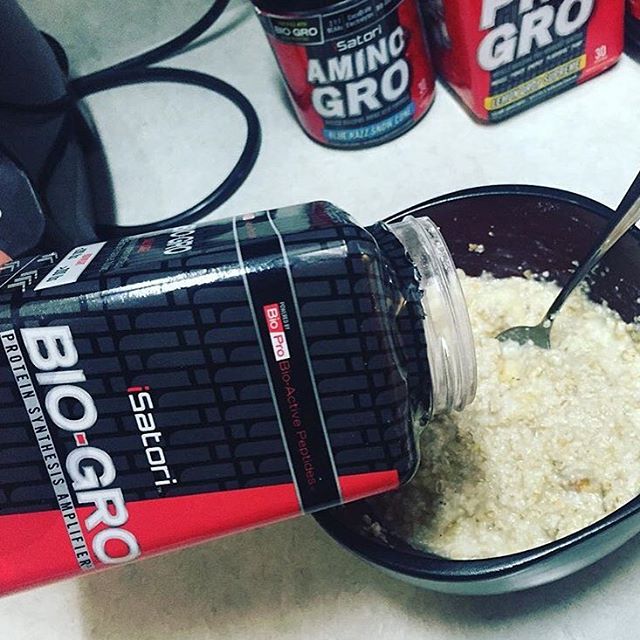
Do you Bio-Gro? Our answer is still about the same: only if you have a large budget and your other nutritional and supplemental bases are already covered
At this point, we have to wonder why iSatori is citing sources regarding injectable IGF-1 in rats when we are yet to see that it's even that bioavailable. After all, if it was, wouldn't all of those IGF-1 sprays be the hottest supplements in town?
We also now have to further wonder if raw colostrum is better than Bio-Gro, since Bio-Gro seems to have been extracted for something that very possibly isn't orally bioavailable, and maybe they removed something really good from the colostrum to get there.
Unfortunately, this review fails in that it leaves us with more questions than we originally started with.
Further unfortunately, we're left in the same exact place where we started regarding our recommendation on whether or not to buy Bio-Gro: "It could be good, but it's probably a second- or third-tier supplement that's best suited to those with a big budget - not the poor college student budget".
We look forward to iSatori's further results-based research, and will continue to refine our blood testing program. Next up... a natural testosterone booster?!
iSatori Bio-Gro – Deals and Price Drop Alerts
Get Price Alerts
No spam, no scams.
Disclosure: PricePlow relies on pricing from stores with which we have a business relationship. We work hard to keep pricing current, but you may find a better offer.
Posts are sponsored in part by the retailers and/or brands listed on this page.
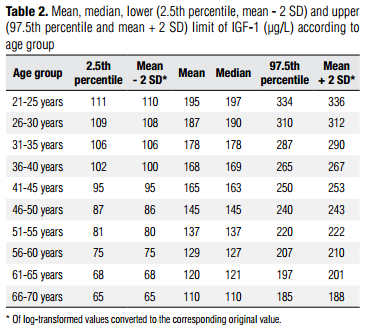
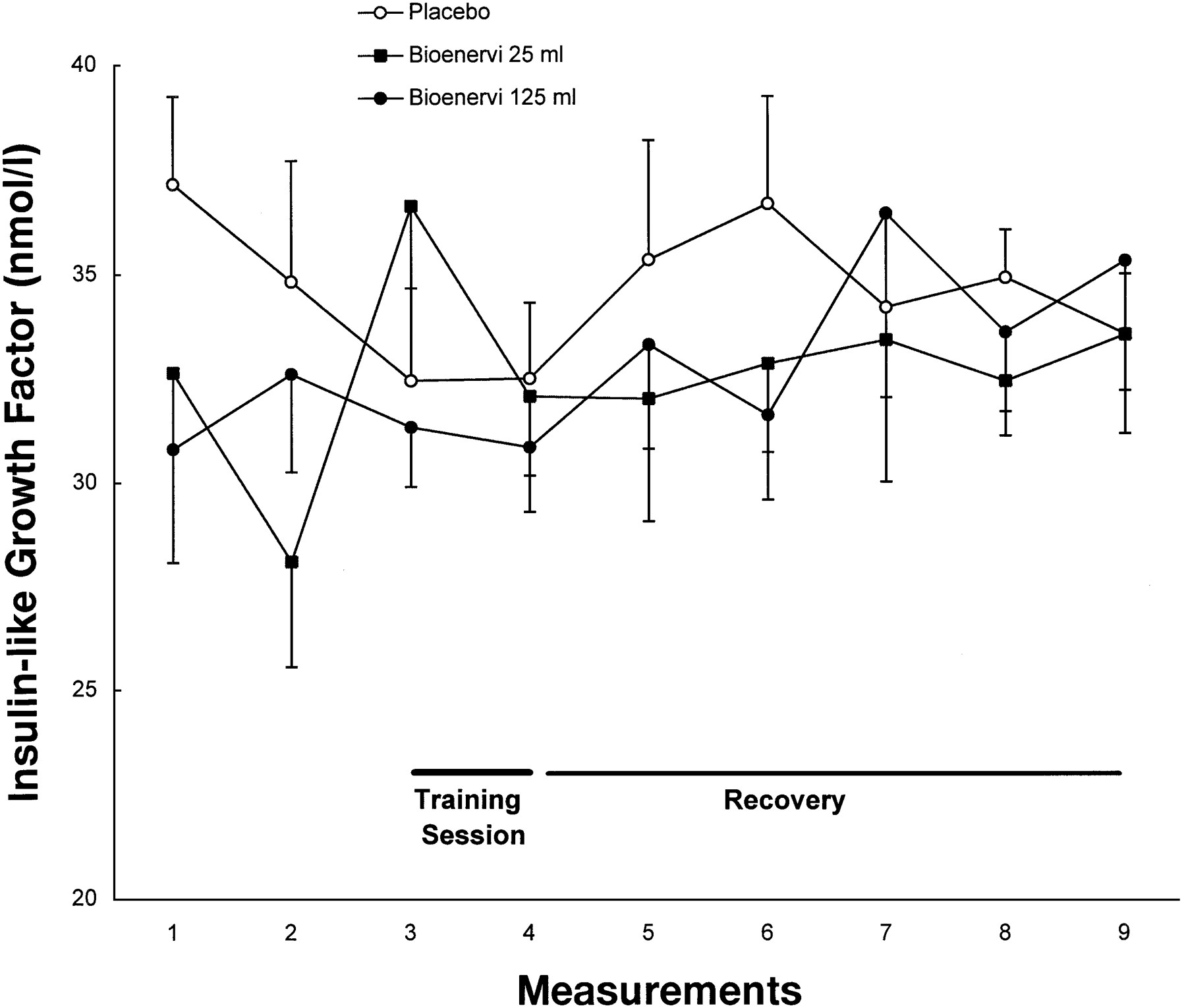



Comments and Discussion (Powered by the PricePlow Forum)